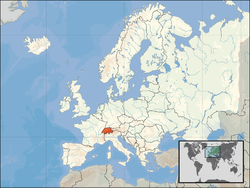A week ago or so, a Danish cargo vessel was liberated after paying a ransom of, allegedly, 700,000 dollars. Now a Basque fishing ship and its crew is being held for ransom in Somalia too, rumors talk of maybe only 100,000 euros this time. A few days ago an Italian oil tanker barely managed to escape another attack in Bab-el-Mandeb strait. France and the USA are working in a UNSC resolution that would allow to persecute pirates inside territorial waters. Several countries have deployed armed vessels in the area, included Spain - that weeks ago was ignoring the fishermen's plea to do it.

Somalia may have been without a real government for 17 years now but its territorial waters, unlike the arid land, are most strategical, to traders and fishermen alike. The vital shipping artery that goes through the Suez Canal, joining Europe with South and East Asia specially, necesarily goes close to the Somali coast, for an even larger stretch if the destiny port is in Eastern Africa. The best fisheries of the Indian Ocean are also close to its territorial waters.
Piracy is therefore a natural option for the impoversihed but well armed and organized somalian tribal and political militias.

They are not anymore just a handful of men on a boat with some riffles. Now they operate from cammuflaged mother ships that pretend to be fishermen at work. But their cargo are very fast motorboats (that can reach 40 knots) and rocket lauchers, not frozen fish. They are expert seafarers, well armed and equipped, trained by European mercenaries, protected by local militias (who get 50% of the bounty) and operating through Swiss banks, where the ransom is deposited safely, before they release the hostages and their ship.

The captain of the Danish vessel, Colin Darch, explains that the pirate gang that kidnapped them was led by some Omar Hassan, and that he would have wanted armed intervention, like the French did recently against those who had captured a luxury yatch. But that's not the opinion held by the fishermen in Bermeo, the home port of the fishing ship now held by the Somalian buccaneers. For them, first of all is securing the life of the hostages, by paying the ransom, and then they can proceed with armed operations if they wish.
Actually, the declarations of the Somali government of going to intervene militarly is causing worries in Bermeo. Fisherman E. Lauzirika thinks that:
It's very bad news because, besides of announcing that they are going to reduce them by force, they have declared that the pirates are sentenced to death, so these will be ready to do anything.
Opinion that is supported by his colleagues, like Barragán, who says:
Liberate them by force is a very bad idea, because one of these pirates, when faced with his end, dies killing. The good thing is to negotiate: pay whatever must be paid and then take whatever measures needed. But first is to save the lives [of he hostages].
Lauzirika also thinks that:
The pirates have a very complex international network that reaches well beyond Africa. They know when to operate and when to remain quiet. Now, with all this noise and with international intervention, they will be some time without operating.

The wife of one of the kidnapped fishermen with his photo and that of the ship 'Playa de Bakio'.
Sources:
- BBC: 'Somalia's pirates face battles at sea'.
- Gara: "Sientes miedo porque no sabes ni cuándo ni por donde te van a venir" (in Spanish)
____
Update (April 27): they have been freed after a payement of $1.2 million. The government doesn't comment on the payement but gestures on future reprisals - when they were totally ignoring the issue until a few weeks ago.










No comments:
Post a Comment